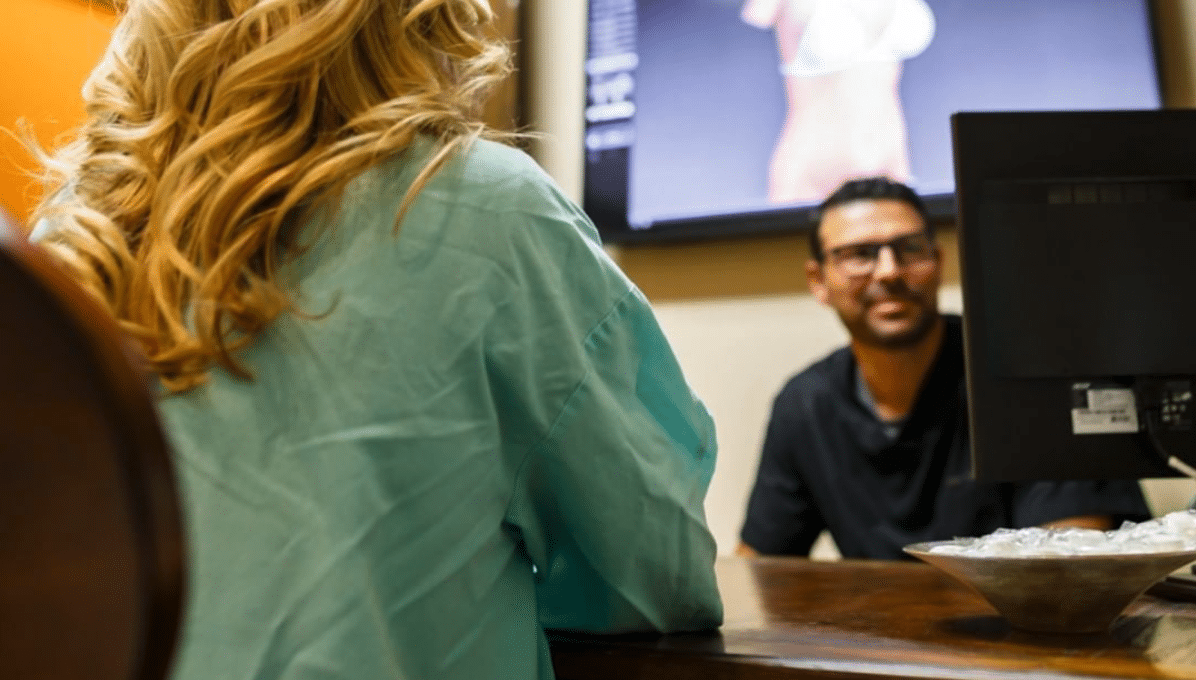“I’m worried my breast implants are toxic and causing me illness.”
Such concerns, heard rarely in the previous 14 years of my plastic surgery practice, are growing at a seemingly exponential rate. We are in the age of internet sharing where ideas, trends and fads spread quickly through Facebook, Instagram and internet forums. Having an increase in patients with these concerns I feel it is my responsibility to examine the source of these in detail. The plastic surgeon in me would choose to simply hold on to conventional wisdom brought forth by numerous safety studies that I have quoted to patients multiple times. But what if there is new evidence, what if there is something going on associated with breast implants that has escaped my awareness and there IS such a thing as breast implant illness, AND it is common? Are these implants truly “toxic bags” as proponents of breast implant illness (BII) would have us believe?
Never has there been such a controversial medical device as the silicone breast implant. Initially created and implanted in 1962, they enjoyed a 30 year period of unregulated implantation with little oversight as to the manufacturing. In 1992, amid controversial claims of illness, the FDA restricted sales of silicone breast implants for cosmetic purposes. There was no credible evidence of injury caused by the implants, rather the moratorium was placed out of abundance of caution as further studies proceeded. After further studies, it was concluded that, “The FDA has not detected any association between silicone gel-filled breast implants and connective tissue disease, breast cancer, or reproductive problems. In order to rule out these and other rare complications, studies would need to be larger and longer than these conducted so far”.
In 1995 the American College of Rheumatology issued a statement critical of claims of connective tissue disorders: "The ACR believes that these studies provide compelling evidence that silicone implants expose patients to no demonstrable additional risk for connective tissue or rheumatic disease." Silicone breast implants were again released for cosmetic use in 2006. Since release, there has been stricter regulation and continued studies. Nearly all of these studies have demonstrated safety of silicone breast implants, at least on a large scale.
But that is simply not the whole story, according to advocates of the breast implant illness theory. There are dozens of publications and editorials that would indicate that in a small minority of women, there is evidence that breast implants could cause illness. They recognize patients with breast implants who have reported some combination of multiple symptoms including: dry mouth, myalgias, skin rash, freckling, joint symptoms, cognitive dysfunction, metallic taste in the mouth, hair loss, nail splitting, immune suppression, smell hypersensitivity and exercise intolerance. Although most of these studies are anecdotal case studies of only a few patients, it is important to look at nonetheless.
As I have scoured the internet and read what women are sharing with each other on these sites, it is clear that something could be going on. It’s not a lot of women, but many of them are adamant that their implants are causing them harm. Some of these studies have shown improvement in symptoms after explantation of the implants. This could be placebo effect, but it would be irresponsible to completely dismiss these claims.
Having been a plastic surgeon since 2003, I have a lot of experience with implants. A busy part of my practice is dedicated to implant revision surgery - many of these patients have had their implant in place in excess of 30 years. I have had a handful of patients concerned their implants may be causing illness. The typical such patient has an ailment that no one seems to be able to diagnose or treat, such as myalgias or chronic fatigue. I have had one patient report seizures and another report heart disease, neither of which are specifically on the list of suspected ailments, but they wanted to cover their bases. We typically have a discussion about removal of the implant alone, or enbloc capsulectomy, and discuss the pros and cons of both. During surgery, none of these patients have had anything that I would note as remarkable or unexpected for implant removal surgery - visually they look like any other breast implant removal patient for any other reason. I have lost some of these patients to follow up, but to my knowledge none of the patients had lasting improvement in symptoms. Not to say that they will not in the distant future - hopefully they will.
I have also had patients express concern over “mold” in their saline implants. I have heard them referred to as “little aquariums” in the body. I have seen photos and read studies of such implants, but I can say in the several hundreds of saline implants I have removed I have never experienced this for myself.
That is not to say that my experience with removal of old implants is never concerning. Occasionally, I will find rupture of silicone implants which can range from bleed of the material through the implant shell to gross extracapsular rupture. I have seen numerous silicone granulomas, which are balls of silicone surrounded by scar tissue, in the surrounding tissue. I have seen lymph nodes that are hard, rubbery and filled with silicone. I have never seen silicone “travel” elsewhere in the body beyond the breast and lymph nodes. In my experience there can be problems with silicone implants, but what I have seen has always been confined to the breast.
What To Do If You're Considering Breast Implants
As a woman considering getting implants, what are you to do? How do you know if you are one of the small minority of patients who could develop breast implant illness symptoms? Here is my advice:
- If there is a relationship between breast implants and these illnesses, it must occur in a small number of women with a genetic predisposition. There are no tests for such predisposition.
- Realize that most of the conditions that are believed to be associated with breast implant illness are found in a higher prevalence in women in their 30s-50s, with or without implants. For example, lupus has a peak incidence from 15-40 years of age with a female:male ratio of about 10:1.
- Cohesive silicone implants (gummy bear implants) have been referred to as safer by many of my patients. There is no data to suggest that in the event of rupture, this actually true or that there is a lower risk of breast implant illness with these implants. In fact, some have claimed that the heavy metals used to create these implants could cause more risk. The arguments on both sides are without evidence.
- If you have a concern regarding silicone implants, there are other alternative options such as traditional saline implants, the ideal implant, and fat grafting.
- If you find yourself to be the kind of person who is preoccupied and worried about this condition before implants are in place, I would recommend not having the procedure. It is simply not worth the worry.
- Realize that silicone is also used in many other implantable medical devices including catheters, pacemakers, specialty contact lenses, and orthopedic implantable devices, although these are much less controversial.
What To Do If You Have Breast Implants
Similarly, if you are a woman who already has implants what should you do?
- Don’t panic, particularly if your implants are not causing you problems. You are most likely one of the many millions of women with breast implants who will never have problems.
- Report any symptoms to your primary physician as well as to your plastic surgeon.
- Remember that implants are not expected to be permanent devices. They require further evaluation by MRI and/or replacement.The longer you have implants, the more likely problems could arise.
- The appropriate timing of implant replacement surgery (for patients without problems) has not been determined, but most clinicians recommend replacement at 10-20 years.
- With replacement surgery, there is no need to remove the capsule unless there is another indication to do so, such as capsular contracture.
- If you are having symptoms and no other cause has been determined, it would be reasonable to have the implants removed. Realize that the implant will have changed the overlying breast tissue and you may be unhappy with the size or shape after explantation.
- Discuss capsulectomy with your plastic surgeon. If there is disease such as gel bleed or rupture, it should certainly be removed, but if entirely benign there are pros and cons to removal. In the truest sense, the capsule is simply the healthy scar tissue that forms around the implant. Capsulectomy is a more involved surgery with higher risks, possibly a lesser cosmetic outcome, tougher recovery, and generally higher costs. There are times when leaving the capsule is safer and wiser, such as for maintaining a healthy blood supply. In my experience, leaving the capsule in some patients allows a capsule tightening procedure to provide an internal lift of the breast for improved shaping. Dr. Yates recommends removing diseased capsules but not healthy capsules.
- Enbloc capsulectomy is something that many of these patients are demanding but few understand. This is simply removing the entire implant and capsule together as opposed to removing the implant from within the capsule prior to removing the capsule. The reality is that there are two challenges that often preclude a plastic surgeon from true enbloc removal. First is that uncommonly, there is extracapsular silicone that cannot be contained within. Second is that in a healthy capsule of a submuscular implant, there is often risk to injury to surrounding structures. The perceived benefit of removal of this healthy capsule is unlikely worth the risk. To date, studies do not support any benefit to enbloc capsulectomy.
In conclusion, the possibility that breast implant illness is an actual entity should be concerning to patients and plastic surgeons alike. We cannot simply disregard patients with symptoms because the data is overwhelmingly in favor of the safety of silicone implants. Rare events require large numbers of data points to show clinical significance and further studies are indicated. If you have questions about breast implant illness, please call Dr. Yates at (801) 525-8741 or fill out our online contact form today.
[calltoaction]
Read what our patients are saying!
I had a breast augmentation surgery on May 19th, 2011. The women in the office are just amazing, and make you feel very comfortable! I did appreciate that Dr. Yates was very concerned with what I wanted to come out looking like. We decided what would be best for my body size, etc. He spent at least an hour with me in the consultation, which was very refreshing these days! I had my surgery on the evening of the 19th, was in and out within an hour and a half. I had a followup appt the next morning, and was already down to Ibuprofen, full range of motion, no issues at all. I have recommended Dr. Yates to EVERYONE I know, including my sister in Arizona. Dr. Yates admits to being a perfectionist, which is an amazing quality in a plastic surgeon! I will be going back to him for anything, another advantage: discounts for repeat customers, with no discount on the quality of work!! Thank you so much to ALL of the people in Dr. Yates’ office!
Click here to read more reviews.



